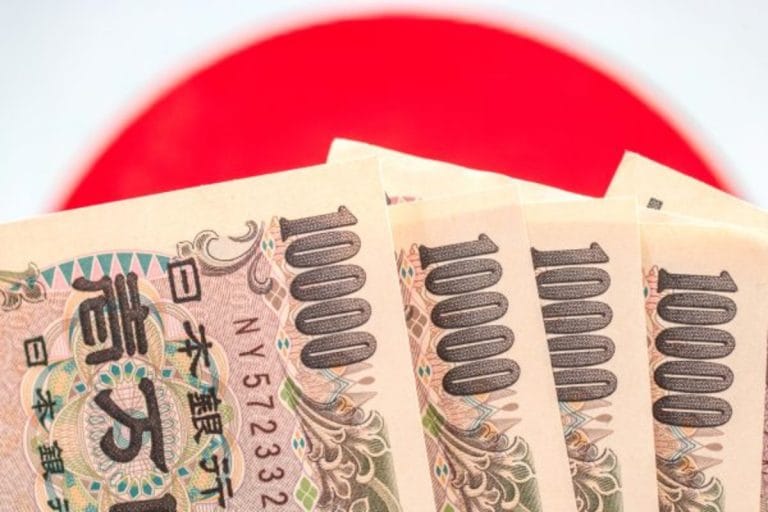🎧 Listen to This Article
As inflationary pressures mount and U.S. trade tariffs weigh on the economy, a long-taboo policy idea is re-emerging at the center of Japan’s political and economic discourse: cutting the consumption tax.
Traditionally viewed as a bedrock of Japan’s fiscal structure, the consumption tax, a value-added tax currently levied at 10% for most goods and services and 8% for food and beverages, has become the subject of renewed interest among politicians and economists alike. Once considered untouchable, the tax is now positioned as a potential tool for economic stimulus and inflation relief as Japan attempts to protect fragile consumer spending and navigate growing political uncertainty.
For decades, Japan has turned to cash handouts to support households during economic stress. The rationale is straightforward: direct payments provide immediate liquidity while preserving the tax framework that sustains welfare programs like pensions and healthcare.
However, following a new wave of U.S. tariffs under President Donald Trump, some economists argue that cutting the consumption tax could be a more direct and behaviorally effective stimulus. Unlike handouts that can be saved or used to pay down debt, tax cuts only benefit consumers when they spend, thereby directly stimulating demand.
Toshihiro Nagahama, Executive Chief Economist at Dai-ichi Life Research Institute, has been one of the leading voices in favor of targeted consumption-tax relief. In a recent report, he proposed eliminating the 8% tax on food, noting that this could boost Japan’s GDP growth rate by 0.4 percentage points, compared to 0.2 percentage points from equivalent cash transfers.
“Spending on food is essential for all households, particularly lower-income families, for whom food makes up a higher share of monthly expenses,” Nagahama wrote. “Making food nontaxable could also mitigate the regressive nature of the consumption tax system.”
His analysis estimates that such a tax cut would cost the government between ¥4 trillion and ¥5 trillion annually—a substantial but arguably justifiable figure amid rising living costs.
Not All Economists Convinced
Still, not everyone is sold on the idea. Critics argue that tax cuts, especially temporary ones, tend to distort consumer behavior, encouraging spending in the short term but often leading to a drop-off once the policy ends.
Yutaro Suzuki, an economist at Daiwa Securities, cautions against overestimating the long-term benefits. “If the tax cut is temporary, it merely shifts demand forward,” he explained. “Once the measure expires, consumption is likely to decline, neutralizing any gains.”
Suzuki also notes that the policy lacks clear objectives. “Is the tax cut considered an anti-inflationary measure or an economic stimulus? The discussion seems muddled,” he said. “It may offer short-term relief if it’s about curbing high prices. But it’s unlikely to be effective if it’s meant to drive sustained economic growth.”
While economists remain divided, political momentum for a tax cut is building. Once viewed as unthinkable due to its implications for public finance, the idea has gained traction in response to growing electoral pressure.
Following the ruling Liberal Democratic Party (LDP)-Komeito coalition’s loss of its Lower House majority in the October 2024 general election, politicians are increasingly wary of voter dissatisfaction, particularly over inflation and stagnant wages. With Upper House elections looming in July, even the previously resistant LDP is softening its stance.
“Opposition parties have been aggressive in calling for a tax cut,” said Suzuki. “If the ruling coalition fails to respond, they risk further erosion of support.”
Among the proposals:
- The Constitutional Democratic Party of Japan, led by former Prime Minister Yoshihiko Noda, proposes making food nontaxable for one year.
- Nippon Ishin no Kai supports a two-year cut.
- The Democratic Party for the People suggests reducing the rate on all products to 5% temporarily.
- The Japanese Communist Party and Reiwa Shinsengumi advocate for abolishing the tax altogether.
A recent internal survey shows that around 80% of LDP Upper House members now support some form of consumption-tax relief, while coalition partner Komeito has officially acknowledged it as a policy option.
Still, Prime Minister Shigeru Ishiba remains cautious. Known for his fiscal conservatism, Ishiba has expressed skepticism over the proposal, arguing that a consumption tax cut would disproportionately benefit higher-income households, who consume more in absolute terms.
Voter sentiment is shifting decisively in favor of tax relief. A TV Asahi survey conducted in April found that:
- Only 30% of respondents support additional cash handouts to combat inflation.
- Nearly 60% oppose such handouts.
- Conversely, 60% support a temporary cut in the consumption tax.
This surge in public support combined with political calculations and economic anxiety may force even reluctant leaders to act.
At the heart of the debate is a delicate balance between short-term relief and long-term fiscal responsibility. Consumption tax revenues account for a significant portion of Japan’s social welfare funding, making any cut potentially destabilizing government finances unless offset by other measures.
Still, with inflation eating into household budgets and political power on the line, what was once politically untouchable may soon become reality.
As Japan’s leaders weigh the options, they face a familiar dilemma: do they act boldly to address voter concerns and economic pressure, or do they hold the fiscal line in the name of long-term sustainability?
The coming months and the upcoming Upper House election may determine the answer.
For further details, clarification, contributions, or any concerns regarding this article, please get in touch with us at editorial@tax.news. We value your feedback and are committed to providing accurate and timely information. Please note that our privacy policy will handle all inquiries.



